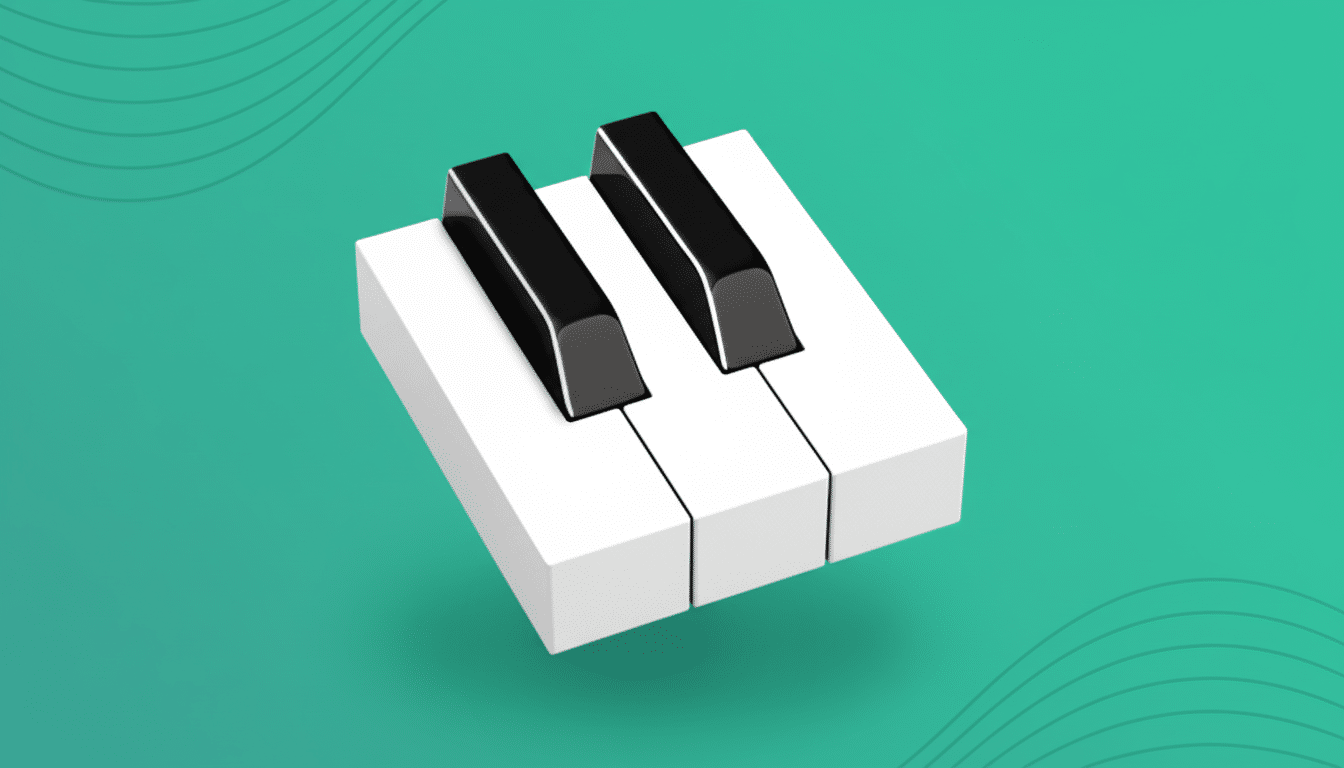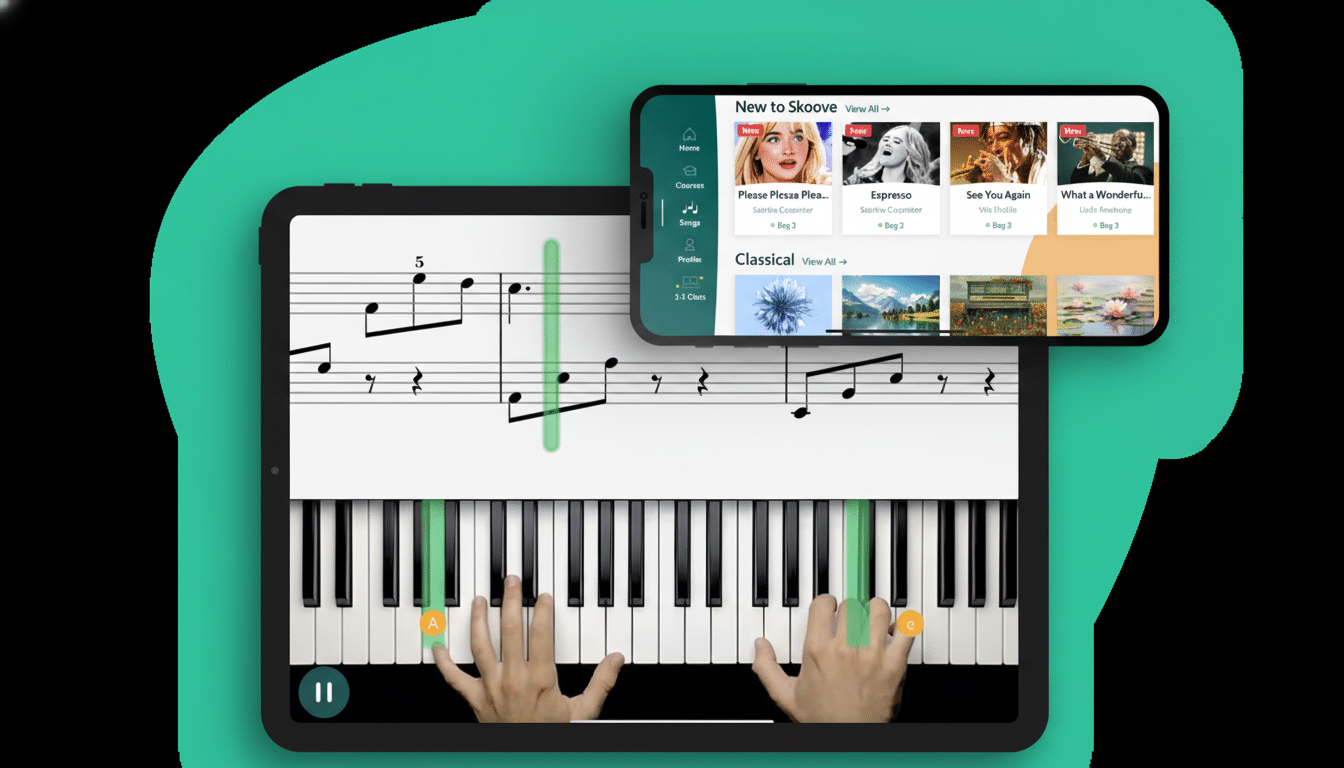A lifetime of organized piano lessons for around $100 is now on the table, and with the sort of flexibility that busy students lust after. Available as a one-time purchase, Skoove’s Premium tier combines guided courses with popular songs and AI-driven feedback for learning that can fit your schedule on almost any keyboard or piano.
What You Get for $100: Inside Skoove’s Lifetime Plan
The package gives you access to a complete curriculum consisting of hundreds of interactive lessons that span, at the outset, what could well be regarded as the absolute basics through intermediate repertoire and skill sets. Over the course, you’ll cover note reading, rhythm, chords, pedaling, and ear training, to name just a few. You’ll also work on creative skills such as improvisation and playing by chords.
- What You Get for $100: Inside Skoove’s Lifetime Plan
- How the AI Coach Speeds Up Learning and Practice
- Value Versus Traditional Lessons for Piano Students
- Who Skoove Helps and the Basic Gear You Will Need
- How to Stick with Your Lifetime Piano Practice Plan
- Bottom Line: A Limited-Time $100 Lifetime Skoove Deal

Song selection is a standout. Look for chart hits and classics mixed in with the essential classical canon, so you can switch back and forth between Adele, The Beatles, and Bach as you get started. The courses are sequenced, yet you can jump to pieces that inspire and return later to fill gaps.
Access is cross-platform. Play on iOS, Android, Mac, or PC with an acoustic piano using your device’s microphone or any MIDI keyboard through USB/Bluetooth. Add progress tracking, practice reminders, and planned milestones to the mix, and long-term learning turns into manageable portions.
How the AI Coach Speeds Up Learning and Practice
Skoove hears you play and highlights notes where it detects pitch errors, poor rhythm (early or late entrances), or uneven timing. It also reacts to dynamics, so you can play louder or softer in passages where the score calls for expression. If a passage trips you up, the app cues a slow-down and looped repetitions — effectively, a patient teacher in software form.
That instant feedback isn’t a gimmick either; research published in Frontiers in Psychology shows that real-time, specific feedback is helpful for the acquisition of motor skills, and spaced, bite-size practice improves retention of newly learned skills. For piano, it’s fewer bad habits, a steadier tempo, and cleaner transitions between hand positions.
Value Versus Traditional Lessons for Piano Students
Private lessons still set the gold standard, but they are expensive. Recent pricing information from Thumbtack and Lessons.com reports the median hourly rate for a piano teacher ranges from $40–$70 in most U.S. cities. One $50 lesson a week is approximately $2,600 per year. A $100 lifetime pass is more than 96% off one year of weekly lessons — not including commute time, cancellations, and scheduling friction.

The trade-off is obvious: an app cannot watch your technique from every angle or prep you for conservatory juries. But for beginners, returnees, and hobbyists who would like a continual sense of progression without the never-ending billing system, the cost-to-content ratio is appealing. It’s also riding on a wider trend — global edtech spending is expected to pass the $400B mark by mid-decade, and music learning apps are one of the fastest-growing niches, according to HolonIQ.
Who Skoove Helps and the Basic Gear You Will Need
If you’ve never touched a keyboard, Skoove’s unique 1-on-1 support will take you through the basics as you get started and deliver your first piece within minutes. Players who let their skills lapse can jump into refresher units and get back up to speed with reading in a hurry. Younger students can also benefit, especially if a parent is there to enforce posture and practice habits.
And the gear is simple: You can start with any 61-key keyboard, but you’ll want the best development of touch that an 88-key weighted digital or acoustic piano offers. Include a sturdy stand, a sustain pedal, and headphones for silent practice. Use your device’s microphone or MIDI for the most accurate note-by-note detection.
How to Stick with Your Lifetime Piano Practice Plan
Study for short bursts every day — 15 to 20 minutes is better than one long weekend cram. Learn pieces hands separately, and using the metronome, raise the tempo only when you can play cleanly three times in a row. Save a recording of yourself weekly; you’ll be shocked at how your own phrasing and timing can spur noticeable improvement.
Establish quarterly micro-goals (like a chordal left hand or one piece like Let It Be) and allow the app’s gentle reminders to keep you consistent. Take it from the body of findings shared in books like “Peak Performance” and teachers’ guides suggested by exam boards (such as ABRSM): routine, focused repetition beats marathon sessions.
Bottom Line: A Limited-Time $100 Lifetime Skoove Deal
Through Dec. 6, you can take advantage of a special $100 lifetime membership that combines structured lessons, real-song practice, and adaptive feedback to make piano learning more affordable and flexible. If you’ve been waiting to start — or to finally graduate from YouTube hopping — here’s a stress-free (and relatively inexpensive) way to get a music education on your terms.

